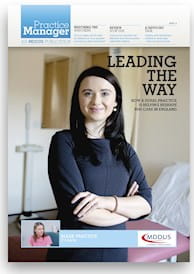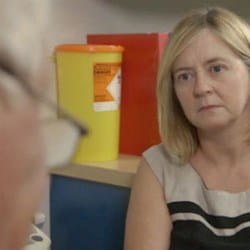
ENSURING your practice has an effective and robust call and recall system is essential for a variety of reasons – most particularly for the safety of your patients. In our experience practice managers or GPs tend to conduct routine chronic disease management recall well but may struggle with the more ad hoc examples illustrated below:
- Prescribing where a drug is normally contraindicated. In this case the GP may wish to monitor the patient closely, for example via blood or urine samples, to keep an eye on whether they are experiencing an adverse effect.
- Results follow-up. A patient may need a repeat test in a couple of weeks or several months’ time to check if they require further investigation or follow-up after an abnormal reading.
- Hospital discharge. A patient may have been discharged from secondary care either with a request from the specialist for the practice to follow-up monitoring or to consider re-referral at local level in the case of a DNA (did not attend). In our experience these letters can sometimes be filed with no action reminder set or clinical decision taken regarding active follow-up. The frequency of this could increase as practices try to improve workflow efficiency by utilising receptionists to review and direct incoming correspondence.
In each of these situations – and I’m sure you can think of others – there is the potential for the patient to get ‘lost’, resulting in the practice facing medicolegal action when that patient suffers harm and subsequently claims they were not properly informed of the need for follow-up or the risk associated with not attending. Ensuring that a conscious decision has been made in partnership with the patient to follow all or some of the steps below – depending on the level of clinical risk if the patient defaults – will help to demonstrate that the practice has acted reasonably.
DOCUMENT PATIENT INSTRUCTIONS
The patient should understand follow-up requirements and be made aware of the risks associated with failure to attend for testing or review, so that future recalls from the practice are taken seriously. In all scenarios, specific communication about the clinical reasons for follow-up should be unambiguous and also documented in the record so that, if an adverse event arises, the practice has an audit trail which will support their position. Instructions from clinicians via a non-clinical member of the team to patients should be clearly documented and specific.
BOOK ADVANCE APPOINTMENTS
The longer the time between the initial test and the follow-up, the more onus there is on the practice to have resources and systems available to keep track of the actions required. It is best if your system allows a member of the team to book an appointment in advance for the patient, including details of which clinician initiated the review and why within the appointment slot. Should the patient call to cancel or fail to attend there should be a clear flag for the receptionist to re-book another date while the patient is on the phone or (for DNAs) to check with the instigating clinician whether the patient requires further followup.
URGENCY AND FEEDBACK
Decide on the level of effort to be expended and whether feedback is required. At the initiation of any call for follow-up, or even more importantly after the patient defaults from an initial call, it is essential that the clinician is clear with non-clinical staff about the urgency of the action and the timeline within which the patient should be reviewed. Do they need to speak to or see the patient that same day or within a couple of weeks? Do they need to know that the patient has not been contactable within an agreed period? Any attempts to contact the patient by non-clinical staff should be documented within the record and GPs should be clear in advance on whether and how they expect to receive feedback on the success or failure of any attempts to make contact with the patient.
WRITE TO THE PATIENT
If you are unable to get the patient on the phone, a letter is often the next action on the list. Please remember here that detailing specific points about the importance of review for an individual patient within a letter is more effective than sending one with a generic, bland statement about making an appointment. Being more specific about the possible consequences of non-adherence can also provide evidence of the clinician ensuring that the patient has been made aware of the risks. You may wish to consider using recorded delivery, particularly where the clinical risk of non-adherence is high. It is not advisable to adopt a 'three letters and then nothing' approach, and asking the patient to sign a disclaimer is much less useful than taking the opportunity to have (and document) a face-to-face chat when the patient is in front of someone!
PLACE AN ALERT
If the situation is not urgent, an alert can be placed in the patient’s record so that, should they attend for another reason, the clinician seeing them can take the opportunity to conduct (and document) a face-to-face conversation with the patient to reinforce the importance of review and to attempt to get to the bottom of any difficulties or worries the patient might have about attending appointments. In the best case scenario, the clinician can undertake the review themselves, there and then.
"ENCOURAGE" ATTENDANCE
You should take steps which encourage the patient to attend. If the patient is on repeat medication, consider whether you could include a message about the need for review with their prescription. Depending on the level of severity associated with the situation, a prescriber could decide to reduce the amount of or withhold a patient’s prescription until they are seen by a GP. Be aware though that there are risks associated with this strategy and therefore it should be used with care – and only after other attempts to engage the patient have failed.
TAKE ADVICE
Take advice from an MDDUS adviser. When you have exhausted the range of options available to you and the patient is still refusing to attend, it can be useful to discuss the situation with an MDDUS adviser. We can help to ensure that you have done enough to communicate to the patient the dangers which they are exposing themselves to by not attending – and whether further action might be taken to ensure you are unlikely to suffer criticism should the patient come to harm.
Liz Price is senior risk adviser at MDDUS
This page was correct at the time of publication. Any guidance is intended as general guidance for members only. If you are a member and need specific advice relating to your own circumstances, please contact one of our advisers.
Read more from this issue of Practice Manager

Save this article
Save this article to a list of favourite articles which members can access in their account.
Save to library
